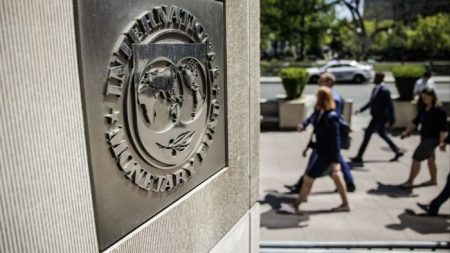Unlock the Editor’s Digest for free
Roula Khalaf, Editor of the FT, selects her favourite stories in this weekly newsletter.
The European Commission on Monday started a process to bring a years-long dispute with Poland over the rule of law in the country to a formal end.
Following an election last year, Poland under the government of the pro-EU Donald Tusk vowed to free itself from the so-called Article 7 procedure, presenting a plan in February to restore judicial independence that had been undermined by Tusk’s nationalist predecessors.
“Today marks a new chapter for Poland,” said European Commission president Ursula von der Leyen on Monday. “After more than six years, we believe that the Article 7 procedure can be closed. I congratulate Prime Minister Donald Tusk and his government on this important breakthrough.”
She added: “The ongoing restoration of the rule of law in Poland is great for the Polish people and for our Union as a whole.”
Tusk’s election is leading to a wider normalisation of relations between Warsaw and Brussels, which had been tense for years under the previous government.
In one sign of detente, Brussels agreed to unlock €137bn in EU funds that had been frozen over the rule-of-law disputes, and last month paid out the first instalment of EU recovery funds to the country, worth €6.3bn.
Polish justice minister Adam Bodnar welcomed the “great news from Brussels” and thanked von der Leyen for her co-operation and support. He added on social media platform X: “Poland is consequently bringing back rule of law. We are determined and devoted to our common European values.”
There is no prescribed way out of an Article 7 procedure in EU law, and this is the first time Brussels is doing it.
The commission will communicate its intention to bring the process to an end to the council and the European parliament, and EU affairs ministers will discuss this at a planned gathering on May 21.
Afterwards the commission will formally withdraw the procedure, a commission spokesperson said.
The EU executive launched the procedure against Poland in 2017 over judiciary reforms that it claimed breached the separation of powers. The punitive process could eventually strip a country of its voting rights in the council, the body representing EU member states, but requires unanimous backing from all remaining countries, and was stuck for years.
The Polish plan, seen by the Financial Times, includes steps to undo reforms undertaken by the previous government of the conservative Law and Justice party (PiS).
Bodnar told a news conference last week that he had had “a dream” that the lifting of Article 7 would happen soon, but he also acknowledged that implementing the necessary reforms was still a work in progress. “This will require legislative changes, presenting appropriate draft laws, and an action plan,” Bodnar said.
On Monday, a commission spokesperson said: “We have seen now a clear commitment [for the first time] in many years by Poland to address these issues, we have seen concrete steps . . . On this basis the analysis of the risk to the rule of law in Poland has changed from our side.”
Monday’s announcement “can be seen as the European Commission rewarding the efforts and plans of the new Polish government to restore the rule of law”, said Jakub Jaraczewski, research director at Berlin-based Democracy Reporting International, a non-government organisation.
“But it’s also an admission that the [Article 7] procedure has failed, due both to its design and the lack of political will, to achieve its goals,” he said. “Positive developments with regards to the rule of law in Poland happened thanks to other tools used by EU, such as withholding the recovery fund, and above all thanks to democratic choice Poles made.”
Read the full article here












